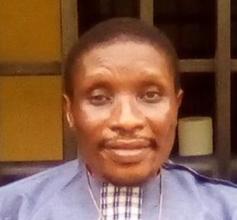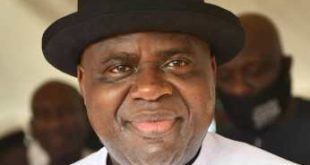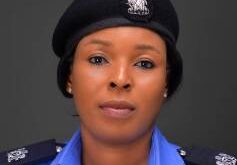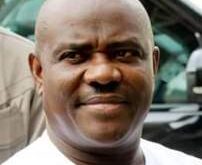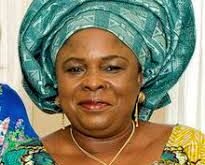The recent celebration of orphans in Eteo-Eleme, by a local institution providing free education for over 200 orphans and vulnerable children (OVC), has drawn the attention of various groups to the deplorable welfare conditions of orphans in Nigeria.
According to projections by the World Health Organization (WHO), over 8.2 million people are likely to be orphaned by in Nigeria, mostly as a result of the scourge of HIV/AIDS disease in the country. Related statistics indicate that Nigeria had about 6.9 million orphans out of its 126 million teeming population.
Speaking during week-long activities to mark the 5th anniversary of Luther Welfare for Children At-Risk Development Centre (LWCARDC) at Eteo in Eleme Local Government Area of Rivers State, the centre director, Rev. Nicholas K. Iloh, called attention to the dare need for enhanced response to the plight of orphans in every community.
According to Rev. Iloh, LWCARDC is carrying out educational services to respond to the educational needs of the OVC who were “previously roaming the streets of communities, in the crisis-beaten Ogoni area, every day of the school week, while normal children were in school.”
Rev. Iloh’s speech touched the hearts of participants at the celebrations, which began on Monday, August 8, 2022, prompting the board chairman of Port Harcourt-based Habitat Protection and Sustainable Development (HAPSDI), Engr. Olu Andah Wai-Ogosu, to call for increased awareness and sensitization to address environmental health and related problems affecting OVC cases throughout Nigeria.
Wai-Ogosu, a two-time national president of the Nigerian Environmental Society (NES), from 2011 to 2015, lamented the lacking advocacy to shore-up national OVC-focused effort in Africa’s most populous country, observing that the spirit of volunteerism is “ever waning away, despite that it was very vibrant through public spirited effort in attending to social needs under traditional practices”.
LWCARDC’s centre director, Rev. Iloh, had earlier remarked that media advocacy can be made to bear much benefit from the current global campaign to improve welfare conditions of OVC, expressing concern over the “multifaceted needs of orphans who are largely forgotten or never attended to by many members of the general society.”
He further lamented that the population of the OVC at the LWCARDC School has been increasing due to increasing numbers of orphans in the society.
Engr. Wai-Ogosu who was accompanied to the event by representatives of his firm, Environmental and Chemical Services Ltd., recommended some solutions to re-awaken the spirit of help and support from the general society towards achieving enhanced benefits and development for vulnerable groups.
Wai-Ogosu further recommended that there should be “popular involvement in the work targeted at improving the welfare conditions of OVC”, while noting that teachers and other role models need to target “portrayal of exemplary life to inspire positive responses that can trickle down to the benefit of the vulnerable groups,” including orphans.
Also speaking at the celebrations, Prince David, who is president of Ogoni Network for Orphans and Vulnerable Children (ONOVC) and director of Bori Business School, called for the establishment of OVC centres in all states of Nigeria.
He observed that the existing desks at the state social welfare ministry bear worrisome inadequacies, which must be addressed with upgraded structure and grassroots close-by services that can be provided by local OVC centres.
Drawing inferences from what is being experienced across the “215 communities” of Ogoni, currently undergoing dimensions of violence, the ONOVC president pointed to the resultant and increasing OVC cases in local communities, stressing that “mere state desk office activities remain far distant from locally felt needs related to OVC in various localities.”
In a paper titled: ‘The Media and Orphans/Vulnerable Children in Nigeria: Any Synergy?,’ a media researcher and scholar of international relations, Dr. Abraham Joe Ikiri, advocated for “inclusive response that would improve media performance in addressing OVC cases to effectively reduce the deplorable condition of orphans in Nigeria”.
Dr. Ikiri’s paper revealed some findings over existing gaps in national effort in addressing the plight of OVC in Nigeria. Critical among these findings include: the absence of streamlined programme of action by Nigerian media owners, operators and stakeholders; the National Action Plan on OVC did not give the Nigerian Media a specified role; there is no existing platform for stakeholders to meet, review and strengthen existing policies and legislations on orphans and vulnerable children in Nigeria.
Another paper presented at the event, titled: ‘Thinking Environmental Education with Focus for Supporting the Orphans and Vulnerable Children (OVC) in Local Communities of Nigeria,’ delivered by Ms Jenny George, called for “taking great strides in supporting OVC”.
Ms George, programme coordinator of Community Environment and Development Network (CEDEN) and graduate member of Nigeria Institute of Safety Professional, observed that, “with a little commitment in the right direction, we can make great strides and huge gains in supporting the OVC in our communities”.
Making inferences from constitutional and legal sources, and against the recent projection of some 6.9 million orphans out of about 126 million Nigerians, Ms George emphasized the need for adopting “universally inclusive processes” that could cater for the practical “needs of OVC cases.”
Ms George opined that agro-based ecological management and practices could be targeted to harness opportunities to empower OVC and their caregiver families.
She equally dwelt on the need to ensure that food security/resource preservation for a better future can be put in focus for proper consideration and planning towards the improvement of local conditions that would enhance the experiences of OVC cases in Nigeria.
It will be recalled that since May 2022, Ms George has been involved in executing a project, titled: Environmental Education for Improved Sound Ecological Management, in Oloibiri clan of Ogbia Local Government Area in Bayelsa State, Nigeria.
With financial support from Global Greengrants Funds (GGF), the environmental education project is promoting efforts to advance implementation of the 1997 approved ‘Non-formal environmental education curriculum’ for the ecological South-East/South-South zone of Nigeria.
 PH Mundial – Port Harcourt Online Newspaper News Across The Region
PH Mundial – Port Harcourt Online Newspaper News Across The Region

